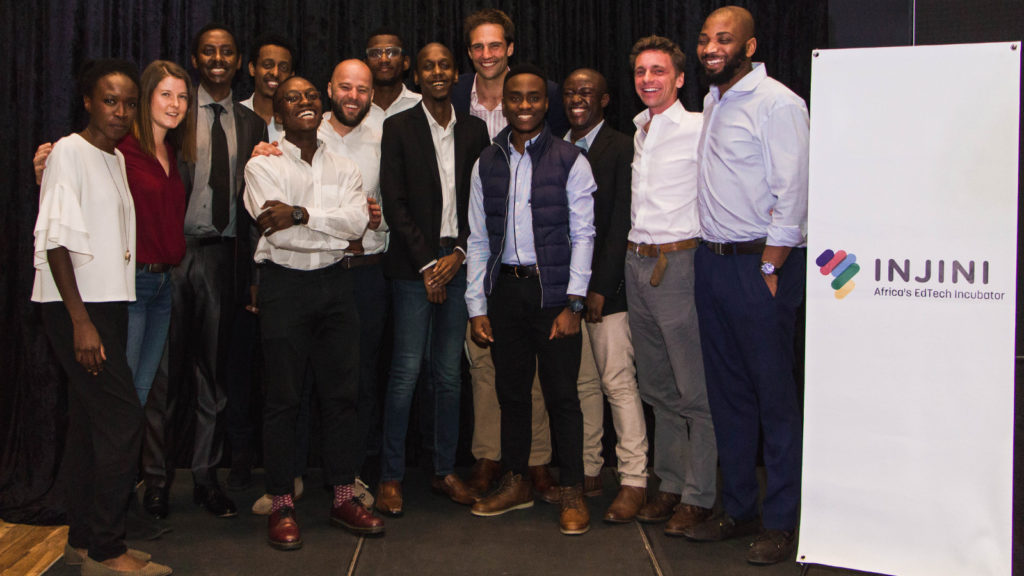South Africa’s creators, coders and founders are under pressure to do more with less. Whether you’re running a meme page from Mitchells Plain, debugging…
Five Injini startups secure trials, partnership deals – incubator head

At least five of the startups in Injini‘s second cohort have secured trials and partnerships with schools, corporates and government agencies since joining the edtech incubator’s programme, Injini CEO and founder Jamie Martin has revealed.
Martin was responding to Ventureburn questions earlier today (29 November) following the demo day the incubator held yesterday (28 November) at Amazon Web Services’ offices in Cape Town to conclude its second cohort.
The demo day saw the seven startups in Injini’s second cohort — namely Bluebic, eLimu, Langbot, Learning Factory, Lightbulb, Nahana Africa, ScholarX and SlateCube — pitch to investors, companies and NGOs.
The invite-only event was also streamed live around the world (check out the video below)
Five of the seven startups in Injini’s second cohort have secured partnerships with entities that include international companies, corporates, schools and the Western Cape government
The partnerships and trials that Martin said the startups have secured include:
- Lightbulb’s partnerships with edtech startup Snapplify and SFI. In addition, the startup is also conducting a trial with the Western Cape government
- Langbot has added a partnership with language school Institute Francais Tokyo to the another they have with Alliance Francais Addis Ababa
- Bluebic has grown from 35 paying schools to 52, with 10 more in the initial paid trial
- Elimu is conducting a trial with the Western Cape government
- Slate Cube launched in South Africa with some high profile clients, including law firm Webber Wenzel.
In addition, Martin pointed out that a number of corporates in attendance were interested in SlateCube’s employability model (the startup is a digital talent accelerator) and its relevance for South Africa, particularly the government’s youth employment services (YES) campaign.
‘Visiting startup home markets useful component’
Asked by Ventureburn what had been the highlights of the accelerator’s second cohort, Martin pointed to how Injini had visited the seven startups respective home markets where it had conducted user testing with them.
“I think that was a really useful component for Injini and the cohort companies,” he said.
Martin added that with three of the cohort’s seven startups hailing from Nigeria, it had been “fantastic” to interact with the market there, given its huge potential — 120 million Nigerians are under the age of 25.
He also highlighted how the incubator’s team is moved to work more closely with the startups in each cohort, to help them to tackle specific problems they face.
“Overall, we have focused the programme more on the two things startups need to do: build things users want, and get people to use them. We’ve also placed a bigger emphasis on impact measurement and learning science,” he explained.
Injini’s second cohort was selected from a pool of 800 applications that came made from 36 African countries. Each of the seven startups selected for the programme received $40 000, office space, accommodation and a flight to Cape Town as well as a stipend.
In addition, as part of the programme, the startups attended workshops and mentorship sessions dedicated to developing edtech products and building startups that can scale across the continent.
Injini is due to run its third cohort next year. The accelerator has yet to announce the date when it will open its next call for applications.
Read more: Nigerian startups dominate lineup in edtech incubator Injini’s second cohort
Featured image: Injini Cohort 2 (Supplied, credit Jasanth Moodley)


